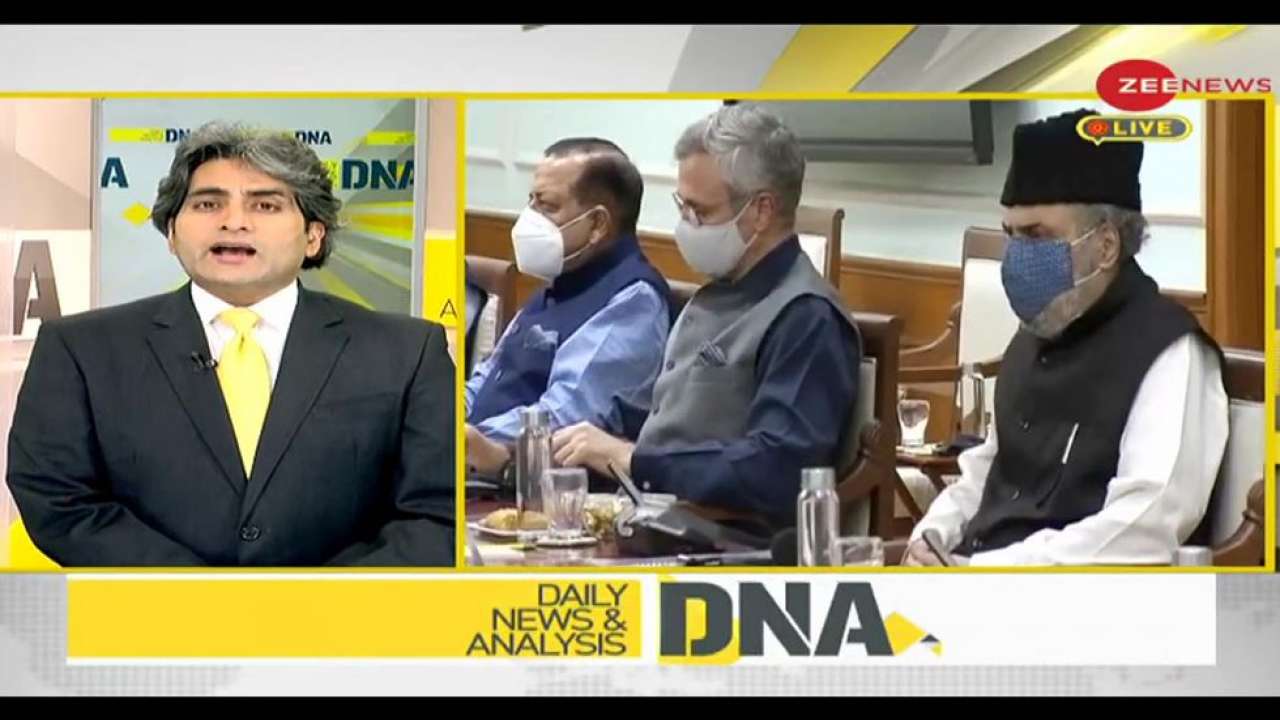
After the abrogation of Article 370 from Jammu and Kashmir, Prime Minister Narendra Modi on Thursday held a meeting with the leaders of Jammu and Kashmir in Delhi for the first time. This meeting lasted for about three and a half hours. Apart from Prime Minister Narendra Modi, Home Minister Amit Shah, Jammu and Kashmir's Lieutenant Governor Manoj Sinha and 14 leaders of 8 parties of Jammu and Kashmir participated in the meeting. National Conference leaders Farooq Abdullah, Omar Abdullah and PDP party president Mehbooba Mufti also attended the meeting. All the leaders got a chance to speak in the meeting and Prime Minister Modi listened very carefully to everyone's suggestions. The Prime Minister told the leaders of Jammu and Kashmir that even though there may be differences, but together we have to end not only the distance of Kashmir from Delhi but also the distance from the heart to Kashmir. He also said that Article 370 is a historical mistake and we have to and it should be rectified.
The important thing that has come out in this meeting is that in Jammu and Kashmir, delimitation will be done first and then elections will be held. After that, it will be given full statehood. That is, first delimitation then elections and then full statehood. The Home Minister assured the leaders of Jammu and Kashmir present in the meeting that all political parties would participate in the process of delimitation. Delimitation means the determination of boundaries, that is, to determine the boundaries of the assembly or Lok Sabha constituencies of a state. According to Article 82 of the Constitution, the government can constitute a Delimitation Commission every ten years and decide the limit of new assembly or Lok Sabha seats on the basis of population and the central government wants to do the first thing in Jammu and Kashmir.
The Prime Minister also said that sitting together and talking is the strength of democracy. And our priority is to strengthen democracy at the grassroots level. According to Prime Minister Modi, the leadership of Jammu and Kashmir should be given to the youth.
After listening to the statements of these leaders after the meeting, two things come to the fore. First, in their language, there is more talk of Pakistan's interest and secondly, all these leaders are opposing the delimitation.
Now it is important for you to understand what is delimitation and why it is needed in Jammu and Kashmir. Delimitation means the re-determining of the boundaries of the seats of Lok Sabha or Vidhan Sabha. The last time the Lok Sabha constituencies were delimited was in the year 1971. Whereas in Jammu and Kashmir, the delimitation of the Legislative Assembly took place in the year 1995. Since 1996, elections are being held in Jammu and Kashmir according to the same delimitation. Now understand why a fresh delimitation is necessary in Jammu and Kashmir. The union territory is divided into two regions, Jammu and Kashmir. According to the 2011 census, the total population of Jammu and Kashmir is about 1.25 crore. There are 85 lakh Muslims and 35 lakh Hindus and 2.3 lakh Sikhs in this.
If you look at the population of Jammu and Kashmir separately, then the population of Jammu is 53.50 lakh. The total assembly seats here are 37. The total population of Kashmir is 68.94 lakh, whereas there are 46 assembly seats here.
On August 5, 2019, while removing Article 370, Home Minister Amit Shah had announced that there would be delimitation in Jammu and Kashmir and 7 assembly seats would be added to the Jammu region. If this happens, the number of seats in Jammu would increase from 37 to 44 and the number of seats in Kashmir will remain 46. There is a large Hindu population in Jammu. In such a situation, the Hindu population will get more representation in the Legislative Assembly and it is possible that a Hindu may also become the Chief Minister for the first time in Jammu and Kashmir.